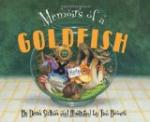To tuition
$12.00
Room rent
3.00
Use of University Library
1.00
Servants’ hire, printing, and so on
2.00
Repairs
.80
Damage for glass
.09
Commons bill, 15-1/2 weeks at $1.62 a week
25.11
Steward’s salary
2.00
Public fuel
.50
Absent from recitation without excuse—once
.03
-------
Total
$46.53
The glass damage at nine cents and the three cents for absence without excuse give me joy. Father was human, after all!
Economically speaking, I do not think that his clothes cost him anything. He wore my grandfather’s old ones. There were no amusements in those days, except going to see the pickled curios in the old Boston Museum. I have no doubt he drove to college in the family chaise—if there was one. I do not think that, in fact, there was.
On a conservative estimate he could not have cost my grandfather much, if anything, over a hundred dollars a year. On this basis I could, on my present income, send seven hundred and fifty fathers to college annually! A curious thought, is it not?
Undoubtedly my grandfather went barefoot and trudged many a weary mile, winter and summer, to and from the district school. He worked his way through college. He married and reared a family. He educated my father. He watched over his flock in sickness and in health, and he died at a ripe old age, mourned by the entire countryside.
My father, in his turn, was obliged to carve out his own fate. He left the old home, moved to the town where I was born, and by untiring industry built up a law practice which for those days was astonishingly lucrative. Then, as I have said, the war broke out and, enlisting as a matter of course, he met death on the battlefield. During his comparatively short life he followed the frugal habits acquired in his youth. He was a simple man.
Yet I am his son! What would he say could he see my valet, my butler, my French cook? Would he admire and appreciate my paintings, my objets d’art, my rugs and tapestries, my rare old furniture? As an intelligent man he would undoubtedly have the good taste to realize their value and take satisfaction in their beauty; but would he be glad that I possessed them? That is a question. Until I began to pen these confessions I should have unhesitatingly answered it in the affirmative. Now I am inclined to wonder a little. I think it would depend on how far he believed that my treasures indicated on my own part a genuine love of art, and how far they were but the evidences of pomp and vainglory.




